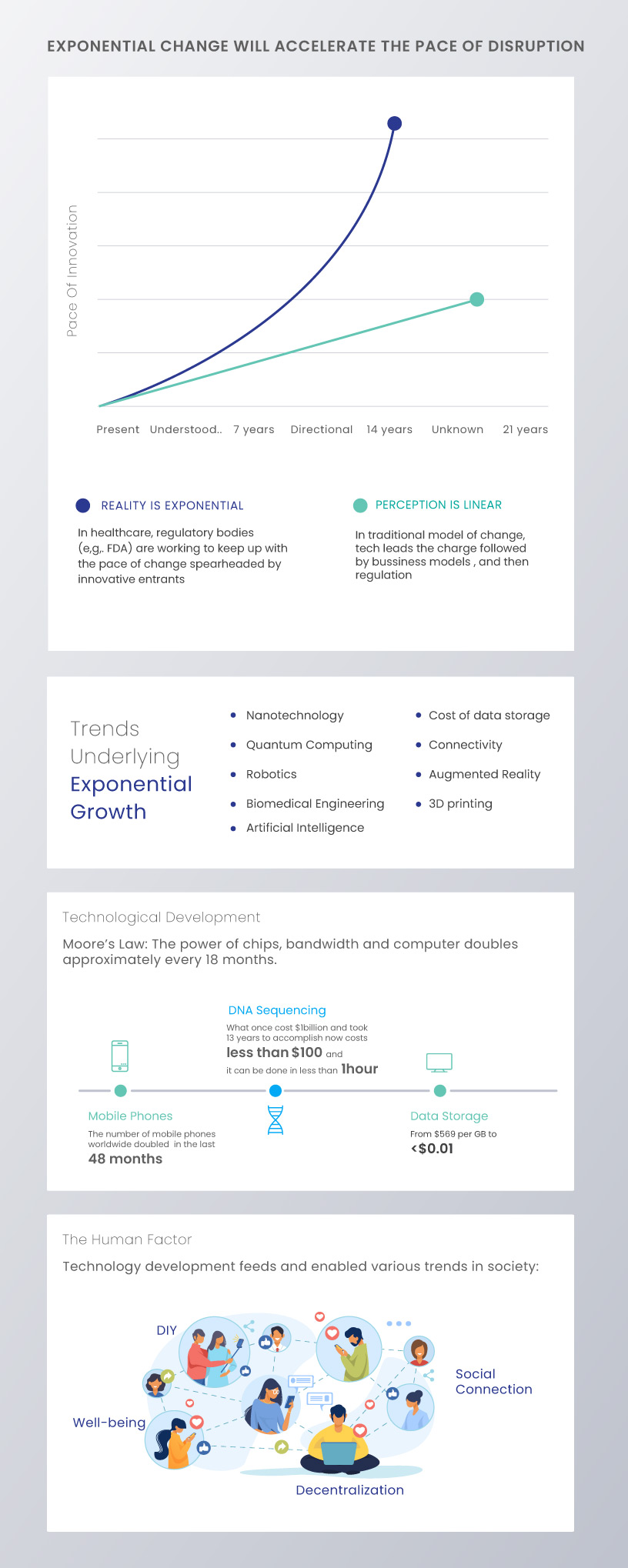The Future of the Hospital
Healthcare in 2040 – The Future of the Hospital

Blog
Healthcare in 2040 – The Future of the Hospital

In the face of COVID-19, healthcare experts were interviewed on what the hospital scenario would be like post the pandemic phase and in the years to come. These were the three key predictions made.
T he COVID-19 health crisis has disrupted the healthcare industry forever and accelerated many of the future strategies that were perceived to take decades to be implemented. Hospitals leveraged analytics and AI to gather insights, extended hospitals beyond walls, integrated telemedicine and virtual care solutions and more. The use of telehealth platforms for virtual visits and consumers’ changing preferences illustrate how hospitals might operate in the future.
In the face of COVID-19, healthcare experts were interviewed on what the hospital scenario would be like post the pandemic phase and in the years to come. These were the three key predictions made.
From the experts’ perspective, hospitals will choose a specific path and evolve into one of the following:
Experts predict that hospitals will deliver hyper-personalized and high-touch experiences—powered by data and health analytics, streamlined operations and outcome-driven care delivery models. They have also concluded that AI and Machine Learning (ML) are the exponential technologies that will revolutionize healthcare in the forthcoming years.
Emerging technologies could disrupt the healthcare ecosystem—however, most of the prevailing systems would evolve and mature in the future—reshaping the healthcare scenario for the greater good. Cognitive technologies like Artificial Intelligence, Augmented Reality and Machine Learning will be the predominant technologies redefining patient experiences and care delivery. Research reveals that interoperability is a game-changer that will enhance the consumer experience by a whopping 38%, reduce the cost of care by 44% and patient management and outcomes by 36%.

Experts believe that integrating digital technologies and smart spaces plays a crucial role in helping hospitals deliver the personalized experience and convenience that they expect. Smart spaces need to be included as a significant part of hospital design to provide flexible and scalable solutions based on surging demands.
The hospital ecosystem is set for major transformation not only in the physical space, but also in delivering the combined benefits of integrating physical with virtual offerings. Digital and virtual health will evolve to offer connected, accessible and continuous care—and healthcare will be provided anytime, anywhere, immaterial of the physical presence of the patient, doctor or the hospital walls. Mobile platforms and solutions will support and enable care delivery at home. In essence, the future of healthcare will bring technology to patients than bringing patients to the technology.
Healthcare organizations need to evaluate and assess which parts of the pandemic response strategies should extend in the aftermath of COVID-19. Hospitals need to consider:
If anything, the catastrophic global health crisis has taught us that transformation can happen sooner and the hospital of the future may be nearer than we think.
To disrupt—or to be disrupted is a choice that hospitals need to make now!
To learn more about how to prepare for sustainable businesses in the aftermath of COVID-19, talk to our team.
From our humble beginnings as a healthcare start-up—to becoming a full-blown healthcare-exclusive digital transformation provider, our journey has been quite a remarkable one. Today, SolvEdge is a leading-edge Healthcare services and solutions provider—trusted by 450+ Hospitals, 3500+ Physicians and millions of patients across the globe.